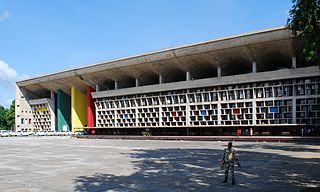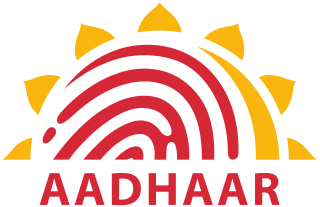
The Central Bureau of Investigation (CBI) is the premier investigating agency of India. Operating under the jurisdiction of the Ministry of Personnel, Public Grievances and Pensions, the CBI is headed by the Director. Originally set up to investigate bribery and governmental corruption, in 1965 it received expanded jurisdiction. The agency has been known to investigate several economic crimes, special crimes, cases of corruption and other high-profile cases.

Case citation is a system used by legal professionals to identify past court case decisions, either in series of books called reporters or law reports, or in a neutral style that identifies a decision regardless of where it is reported. Case citations are formatted differently in different jurisdictions, but generally contain the same key information.

The Government of India, often abbreviated as GoI, is the union government created by the constitution of India as the legislative, executive and judicial authority of the union of 29 states and seven union territories of a constitutionally democratic republic. It is located in New Delhi, the capital of India.
Public Interest Litigation is directly filed by an individual or group of people in the Supreme Court and High Courts and judicial member. The person who is filing the petition must not have any personal interest in the litigation, this petition is accepted by the court only if there is interest of large public involved. Generally this petition is filed by a public spirited person or organisation, if it was felt that certain interests are undermined by the government; In such a situation, the court directly accepts the public interest litigation. It is a new legal horizon in which a court of law can initiate and enforce action to serve and secure significant Public Interest Litigation.(PIL)

Adarsh Sein Anand was the 29th Chief Justice of India, serving from 10 October 1998 to 31 October 2001.

The Indian Penal Code (IPC) is the official criminal code of India. It is a comprehensive code intended to cover all substantive aspects of criminal law. The code was drafted in 1860 on the recommendations of first law commission of India established in 1834 under the Charter Act of 1833 under the Chairmanship of Lord Thomas Babington Macaulay. It came into force in British India during the early British Raj period in 1862. However, it did not apply automatically in the Princely states, which had their own courts and legal systems until the 1940s. The Code has since been amended several times and is now supplemented by other criminal provisions.

Law reports or reporters are series of books that contain judicial opinions from a selection of case law decided by courts. When a particular judicial opinion is referenced, the law report series in which the opinion is printed will determine the case citation format.

High Court of Punjab and Haryana is the common High Court for Indian states of Haryana and Punjab and Union Territory of Chandigarh based in Chandigarh, India. As of 01 July 2019, there are 50 judges in the High Court, comprising 43 permanent and 7 additional judges. Past judges include Jagdish Singh Khehar, Ranjan Gogoi who were elevated to the Supreme Court of India and became Chief Justice of India.

The United States Reports are the official record of the Supreme Court of the United States. They include rulings, orders, case tables, in alphabetical order both by the name of the petitioner and by the name of the respondent, and other proceedings. United States Reports, once printed and bound, are the final version of court opinions and cannot be changed. Opinions of the court in each case are prepended with a headnote prepared by the Reporter of Decisions, and any concurring or dissenting opinions are published sequentially. The Court's Publication Office oversees the binding and publication of the volumes of United States Reports, although the actual printing, binding, and publication are performed by private firms under contract with the United States Government Publishing Office.
The British and Irish Legal Information Institute provides legal information, and especially reports of cases decided by courts, in the United Kingdom generally. Decisions from England and Wales, Ireland, Northern Ireland, Scotland, the European Union, and from the European Court of Human Rights are put online. It is a partial online database of British and Irish legislation, case law, law reform reports, treaties and some legal scholarship.
The Indian Judiciary administers a common law system in which customs, precedents and legislation, all codify the law of the land. It has in fact, inherited the legacy of the legal system established by then the colonial powers and the princely states since the mid-19th century, and has partly retained characteristics of practices from the ancient and medieval times.

Jagdish Sharan Verma was an Indian jurist who served as the 27th Chief Justice of India from 25 March 1997 to 18 January 1998. He was the chairman of National Human Rights Commission from 1999 to 2003, and chairman of the Justice Verma Committee Report on Amendments to Criminal Law after the 2012 Delhi gang rape case. He remains one of India's most highly regarded Chief Justices and eminent jurists.
Prafullachandra Natwarlal Bhagwati was the 17th Chief Justice of India, serving from 12 July 1985 until his retirement on 20 December 1986. He introduced the concepts of public interest litigation and absolute liability in India, and for this reason is held, along with Justice V. R. Krishna Iyer, to be a pioneer of judicial activism in the country.

Aadhaar is a 12-digit unique identity number that can be obtained voluntarily by residents of India, based on their biometric and demographic data. The data is collected by the Unique Identification Authority of India (UIDAI), a statutory authority established in January 2009 by the government of India, under the jurisdiction of the Ministry of Electronics and Information Technology, following the provisions of the Aadhaar Act, 2016.
The law of Virginia consists of several levels, including constitutional, statutory, regulatory, case law, and local law. The Code of Virginia forms the general statutory law.
The law of New Jersey consists of several levels, including constitutional, statutory, regulatory, case law, and local law.
The law of Massachusetts consists of several levels, including constitutional, statutory, regulatory, case law, and local ordinances. The General Laws of Massachusetts form the general statutory law.

PJS v News Group Newspapers Ltd [2016] UKSC 26 is a UK constitutional law case in which an anonymised privacy injunction was obtained by a claimant, identified in court documents as "PJS", in order to prohibit publication of the details of a sexual encounter between him and two other people. Media outside England and Wales identified PJS as David Furnish.
The Human Immunodeficiency Virus and Acquired Immune Deficiency Syndrome Act, 2017, often shortened to the HIV/AIDS Prevention Act, is an act of the Parliament of India that provides for controlling and preventing of HIV/AIDS and securing the rights of individuals diagnosed with HIV/AIDS. The bill for the act was introduced in the Rajya Sabha on 11 February 2014 and was referred to a Standing Committee on 24 February 2014, which submitted its report on 29 April 2015. After few amendments to the original 2014 bill, it was passed by the Rajya Sabh on 21 March 2017 and the Lok Sabha on 11 April 2017. It received Presidential assent on 20 April 2017, and became effective from 10 September 2018. The HIV/AIDS Prevention Act originated from a draft bill submitted by Lawyers Collective, a non-governmental organization, to the National AIDS Control Organisation (NACO) in 2006. The act penalises propagation of hate against HIV/AIDS affected persons, ensures the right of HIV/AIDS affected minors to shared household, protects non-disclosure of HIV/AIDS status in the absence of court order and mandates informed consent to disclose HIV/AIDS positive identity, inter alia. However, civil society organisations and HIV/AIDS affected persons criticsed the act on certain legal language issues, as it mandates the state to provide HIV/AIDS affected persons with medical services "as far as possible". This aspect was absent from the draft bill submitted to NACO.









